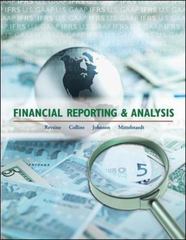Question
Background :Some years back policy makers in the Kingdom of Bahrain were faced with rising inflation caused by the fall in the value of the
Background:Some years back policy makers in the Kingdom of Bahrain were faced with rising inflation caused by the fall in the value of the US dollar relative to other currencies. The Kingdom's currency unit, the Bahraini dinar (BD), is pegged to the dollar, so when the dollar goes down in value the BD goes down as well. A weaker dollar/dinar means that anything and everything Bahrainis buy from overseas cost them more dinars.The dramatic fall in the dollar/dinar essentially made all Bahrainis poorer in terms of what their money would buy. To soften the effect of the peg the government agreed at the time to give each low-income Bahraini household (but not non-Bahraini residents, who represent 52.7% of the Kingdom's population and 70%-plus of its workforce) BD50 (equal to $133) monthly to make it easier to buy food and other necessities. We can't forget, however, that inflation can be caused by putting too much money into the economy and that a rise in the general price of necessities can hurt consumers, especially those with low incomes. The fall in the currency could be compounded with price increases due to the injection of more money. This is quite a bind.
The economics: considered the basic assumptions of behavior that underlie the discipline (incentives, self-interest, efficiency); the description of cost-benefit analysis at the micro level, including marginalism and opportunity cost; the application of these assumptions in the lesson taught to us by Henry Hazlitt; and the need to investigate with disinterestedness.
Your tasks: Given this background , provide an outline of your plan to determine whether or not this policy makes sense. Explain how you would go about determining if it makes sense. In particular:
a)What role, if any, will marginalism, incentives, and disinterestedness play in the questions you ask and the inferences you make in determining whether or not a policy makes sense? For example, what do you assume regarding the economic behavior of those receiving the money?Why might these assumptions matter?
b)Should we address the effects over different timeframes? If so, why does time matter if the problem is likely short lived?
c)What importance, if any, should you apply to the policy stipulation that different groups are treated differently?In short, do non-citizens matter, and if so, why?
d)What questions would you ask of those who drafted the policy for the government, and why?
e)What data might you need to gather, in general, to analyze the proposed policy?
Step by Step Solution
There are 3 Steps involved in it
Step: 1

Get Instant Access to Expert-Tailored Solutions
See step-by-step solutions with expert insights and AI powered tools for academic success
Step: 2

Step: 3

Ace Your Homework with AI
Get the answers you need in no time with our AI-driven, step-by-step assistance
Get Started


